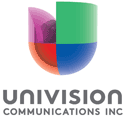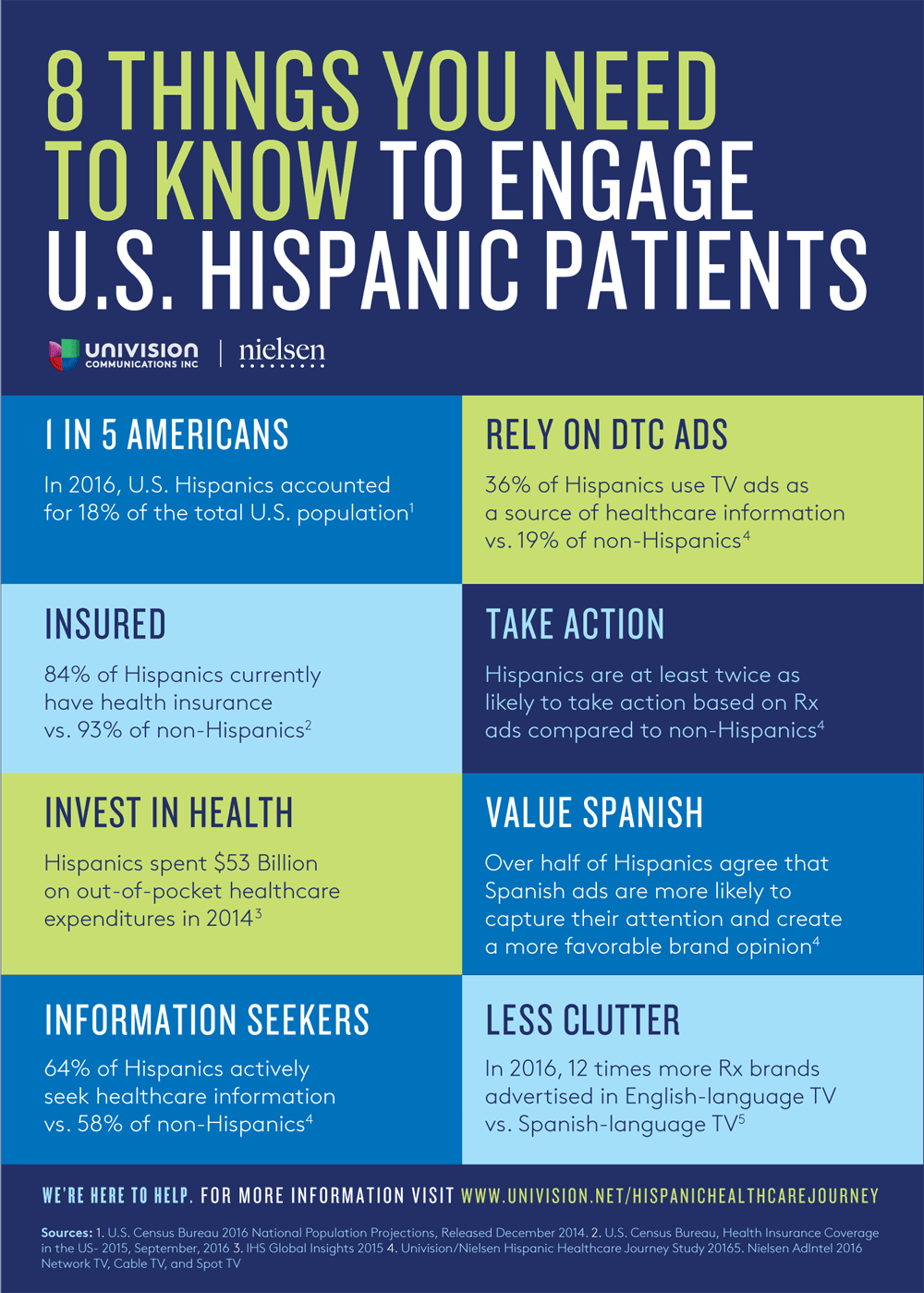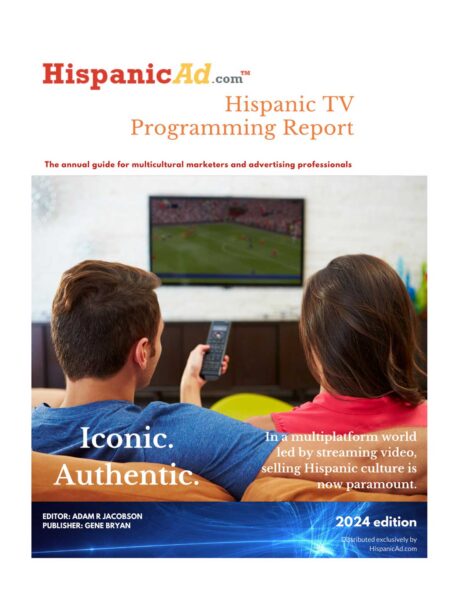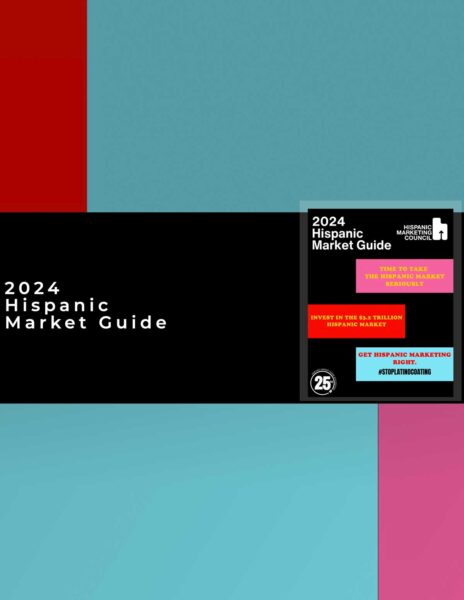Univision and Nielsen at DTC National: Tips for Addressing Hispanic Health [INFOGRAPHIC]
May 4, 2017
 By Carlos Gutierrez
By Carlos Gutierrez
Recently, we joined DTC Perspectives for its annual DTC National conference. It was encouraging to see that despite all the changes in the healthcare industry today, one thing remains constant for DTC marketers— helping patients is a top priority. Bob Erlich, CEO of DTC Perspectives Inc., said “the many case studies we heard from drug marketers clearly showed the first priority for them is to educate and help patients.” We couldn’t agree more. However, when it comes to educating and helping Hispanic patients, significant additional efforts are needed from most companies.
The Univision panel was focused on how to provide marketers with tips on how to reach, influence and address Hispanics’ healthcare needs. Felisha Lewis, Vice President of Healthcare at Nielsen, and Dr. Juan Rivera, UCI’s Chief Medical Correspondent presented their experiences, data and recommendations.
Here are some takeaways from our discussion:
Understanding the Hispanic patient
During the discussion, Felisha emphasized how important it is to “use the Hispanic insights you have when building your marketing plans.” For instance, according to the Hispanic Healthcare Journey study (HHJ), Hispanics are actively seeking information about their health, whether it’s about their symptoms or understanding their conditions. This leads to an opportunity for brands to reach out to patients who will be receptive to their message. As Dr. Juan said, “it’s very important to understand that the Hispanic community needs our help. For any marketer who wants to grow their business, these insights are key.”
Connecting in culture and in language
“There are multiple studies that show that people want to see people that look like them, talk like them, and are participating in the same kinds of activities as they are” said Felisha. “When you think about the storylines that you’re building for your campaigns, take that into consideration.” She also mentioned that language plays a key role in connecting with Hispanic patients. “One of the most surprising factors for me in the HHJ study was that language wasn’t just about the engagement, it was really about comprehension as well. If you think about it, medicine is its own language. I’m a native English speaker. If my doctor is talking to me about a medication, I get overwhelmed and confused. Now, add in another layer of something that’s a potential barrier, and the opportunity for information to get lost in translation becomes significant.”
Engaging through the right channels
Media plays a significant role in how Hispanics receive their healthcare information. In fact, throughout our research, we’ve learned that Hispanics are 56% more likely than non-Hispanics to say RX ads are a key source of information. As a result, they are at least twice as likely to take action based on those ads, such as speaking to a healthcare physician. According to Felisha, “it’s about adopting a total Hispanic consumer strategy. It’s not just TV and it’s not just digital. It’s about having a presence in both channels. We saw in the HHJ study that this is an audience that likes to get information from television via advertising or health segment shows like Dr. Juan’s, as well as searching via digital—whether its YouTube, social media, or mobile.”
































